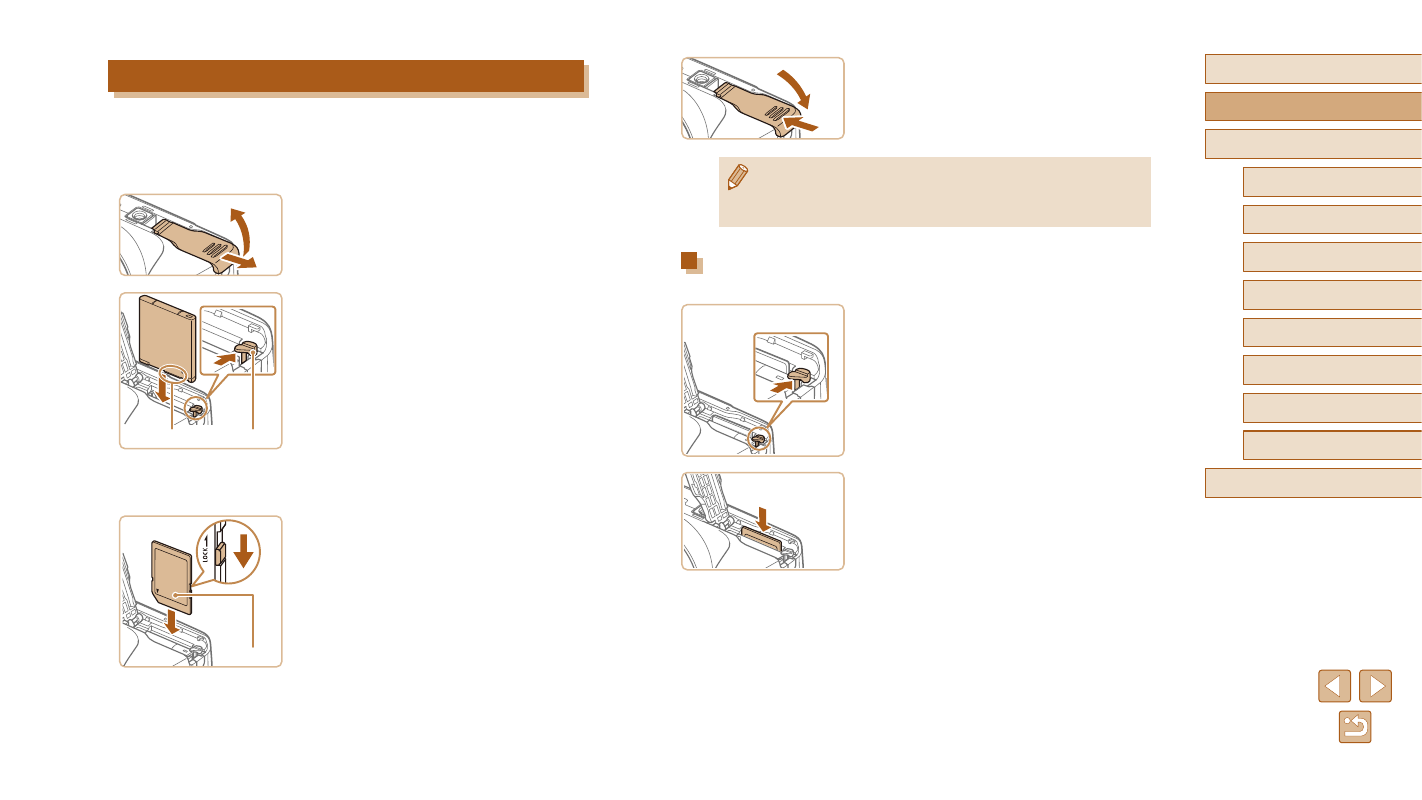Inserting the battery pack and memory card, Removing the battery pack and memory card – Canon PowerShot SX410 IS User Manual
Page 16

16
Before Use
Basic Guide
Advanced Guide
1
Camera Basics
2
Auto Mode
3
Other Shooting Modes
5
Playback Mode
6
Setting Menu
7
Accessories
8
Appendix
Index
4
P Mode
4
Close the cover.
●
Lower the cover (1) and hold it down as
you slide it, until it clicks into the closed
position (2).
●
For guidelines on how many shots or hours of recording can be
saved on one memory card, see “Number of Shots per Memory
Card” (= 114).
Removing the Battery Pack and Memory Card
Remove the battery pack.
●
Open the cover and press the battery
lock in the direction of the arrow.
●
The battery pack will pop up.
Remove the memory card.
●
Push the memory card in until it clicks,
and then slowly release it.
●
The memory card will pop up.
(1)
(2)
Inserting the Battery Pack and Memory Card
Insert the included battery pack and a memory card (sold separately).
Note that before using a new memory card (or a memory card formatted
in another device), you should format the memory card with this camera
1
Open the cover.
●
Slide the cover (1) and open it (2).
2
Insert the battery pack.
●
Holding the battery pack with the
terminals (1) facing as shown, press the
battery lock (2) in the direction of the
arrow and insert the battery pack until the
lock clicks shut.
●
If you insert the battery pack facing the
wrong way, it cannot be locked into the
correct position. Always confirm that the
battery pack is facing the right way and
locks when inserted.
3
Check the card’s write-protect tab
and insert the memory card.
●
Recording is not possible on memory
cards with a write-protect tab when the
tab is in the locked position. Slide the tab
to the unlocked position.
●
Insert the memory card with the label (1)
facing as shown until it clicks into place.
●
Make sure the memory card is facing the
right way when you insert it. Inserting
memory cards facing the wrong way may
damage the camera.
(1)
(2)
(1)
(2)
(1)